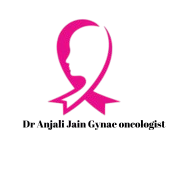Polycystic Ovarian Disease (PCOD), also known as Polycystic Ovary Syndrome (PCOS), is a common hormonal disorder affecting women of reproductive age. It is characterized by a range of symptoms linked to hormonal imbalances, which can affect ovarian function, metabolism, and appearance. PCOD/PCOS can also have long-term health implications if not properly managed.
Key Features of PCOD/PCOS
Hormonal Imbalance:
- Women with PCOD often have higher levels of male hormones (androgens), which can interfere with normal ovulation and lead to symptoms like acne and excess body hair (hirsutism).
Irregular Menstrual Cycles:
- Due to inconsistent ovulation, women may experience infrequent, irregular, or prolonged menstrual periods. Some women may not ovulate at all, making it difficult to conceive.
Polycystic Ovaries:
- The ovaries may develop multiple small cysts (fluid-filled sacs) that can disrupt the release of eggs. However, the presence of cysts is not necessary for a diagnosis of PCOD/PCOS.
Insulin Resistance:
- Many women with PCOD have insulin resistance, meaning their bodies do not use insulin effectively. This can lead to elevated blood sugar levels and an increased risk of developing type 2 diabetes.
Symptoms of PCOD/PCOS
- Irregular Periods: Missed periods, fewer periods, or heavy and prolonged menstrual bleeding.
- Weight Gain: Difficulty losing weight or unexplained weight gain, particularly around the abdomen.
- Excess Hair Growth: Often on the face, chest, or back (hirsutism), due to elevated androgens.
- Acne and Oily Skin: Hormonal imbalances can lead to severe acne, particularly on the face, chest, and upper back.
- Hair Thinning or Male-Pattern Baldness: Some women experience thinning hair on the scalp or hair loss similar to male-pattern baldness.
- Darkening of Skin: Dark patches, particularly around the neck, groin, and under the breasts (acanthosis nigricans).
- Fertility Issues: Difficulty getting pregnant due to irregular or absent ovulation.
- Mood Swings: Anxiety, depression, or mood swings are common.
Causes of PCOD/PCOS
The exact cause of PCOD is not fully understood, but several factors are thought to contribute:
- Genetics: PCOD tends to run in families, suggesting a genetic component.
- Insulin Resistance: Insulin resistance is a key factor, leading to elevated insulin levels, which can increase androgen production by the ovaries.
- Excess Androgen Production: Higher levels of male hormones can interfere with ovulation, causing many of the symptoms associated with PCOD.
- Low-Grade Inflammation: Women with PCOD often have low-grade inflammation that stimulates polycystic ovaries to produce androgens.
Diagnosis of PCOD/PCOS
There is no single test to diagnose PCOD. Doctors usually diagnose it based on the presence of at least two of the following criteria:
- Irregular Ovulation: As indicated by irregular or absent periods.
- Signs of Elevated Androgens: Either clinically (excess hair growth, acne) or based on blood tests.
- Polycystic Ovaries: Visible on an ultrasound, showing enlarged ovaries with multiple small follicles.
Doctors may also perform blood tests to check for hormone levels (including androgens and insulin), and screen for conditions like diabetes and high cholesterol.
Treatment and Management of PCOD/PCOS
There is no cure for PCOD, but it can be effectively managed with lifestyle changes and medical treatment to relieve symptoms and reduce long-term health risks.
Lifestyle Modifications:
- Dietary Changes: A balanced diet rich in whole grains, lean proteins, fruits, and vegetables can help regulate blood sugar and insulin levels. Avoiding refined sugars and processed foods is also important.
- Exercise: Regular physical activity helps improve insulin sensitivity, reduce weight, and regulate ovulation.
- Weight Loss: Even a modest weight loss of 5-10% can improve menstrual cycles and fertility in women with PCOD.
Medications:
- Birth Control Pills: Oral contraceptives can help regulate menstrual cycles, reduce androgen levels, and improve acne.
- Metformin: Commonly prescribed for women with insulin resistance to help control blood sugar and reduce insulin levels.
- Anti-Androgen Medications: Drugs like spironolactone may be used to reduce excess hair growth and androgen-related symptoms.
- Fertility Treatments: For women trying to conceive, medications like clomiphene citrate (Clomid) or letrozole (Femara) can stimulate ovulation. In Vitro Fertilization (IVF) may be recommended in more severe cases.
Skin and Hair Treatments:
- Dermatological treatments such as topical creams for acne or hair removal techniques (laser, electrolysis) may be used to manage excess hair and skin problems.
Long-Term Health Risks
If untreated, PCOD can increase the risk of several long-term health conditions, including:
- Type 2 Diabetes: Due to insulin resistance.
- Cardiovascular Disease: Women with PCOD are at higher risk of high blood pressure, cholesterol problems, and heart disease.
- Endometrial Cancer: Irregular or absent periods can lead to thickening of the uterine lining (endometrial hyperplasia), increasing the risk of endometrial cancer.
- Infertility: Due to irregular ovulation.
Emotional and Psychological Impact
PCOD/PCOS can also have a significant emotional and psychological impact, leading to anxiety, depression, and self-esteem issues due to symptoms like acne, weight gain, or hair loss. It is important to address mental health as part of the overall treatment plan.
Managing PCOD Holistically
In addition to medical treatments, many women find relief through holistic approaches such as:
- Stress Management: Techniques like yoga, meditation, and mindfulness can help reduce stress, which may worsen symptoms.
- Supplements: Some studies suggest that supplements like inositol, omega-3 fatty acids, and vitamin D may help regulate insulin and hormone levels.
Conclusion
PCOD/PCOS is a manageable condition with proper care and lifestyle adjustments. Early diagnosis and treatment can help control symptoms, improve fertility, and reduce long-term health risks.
